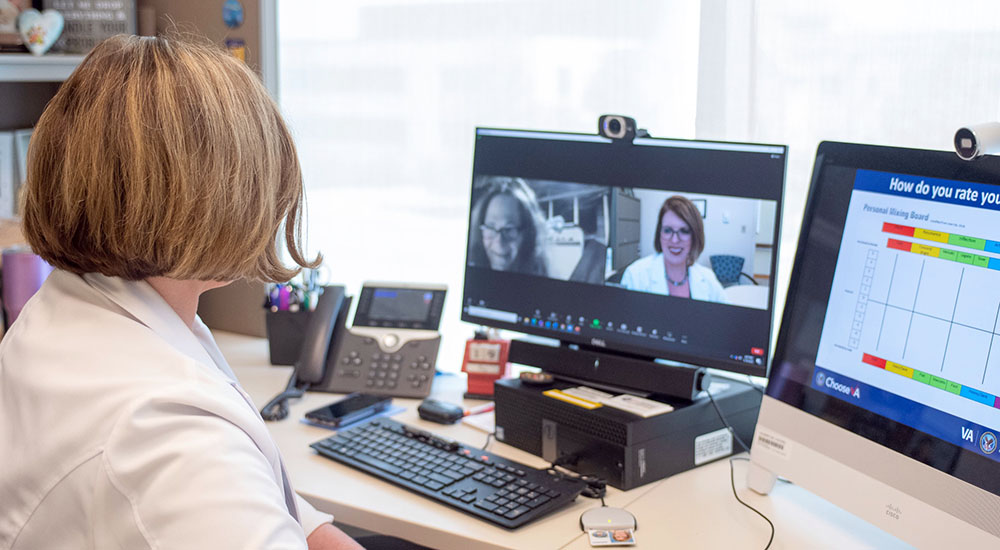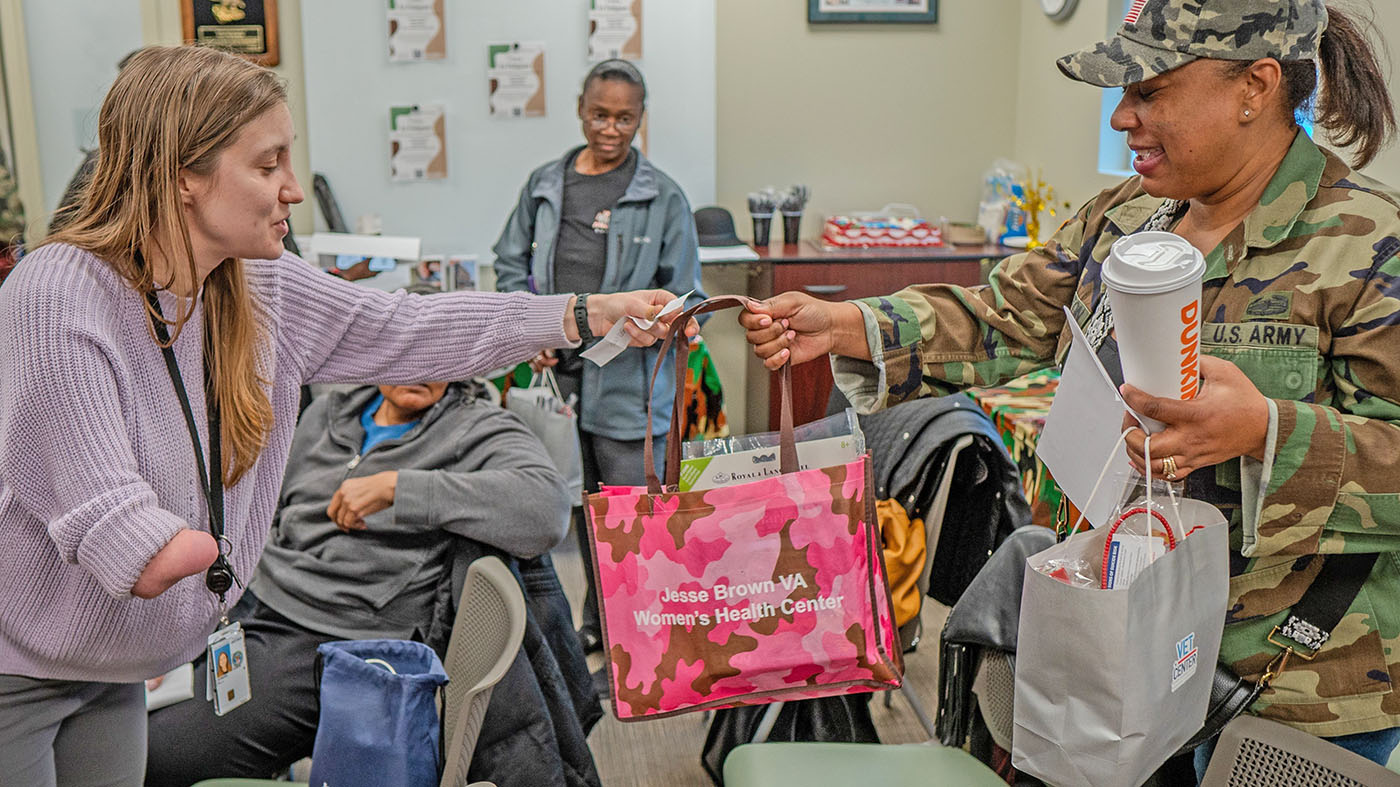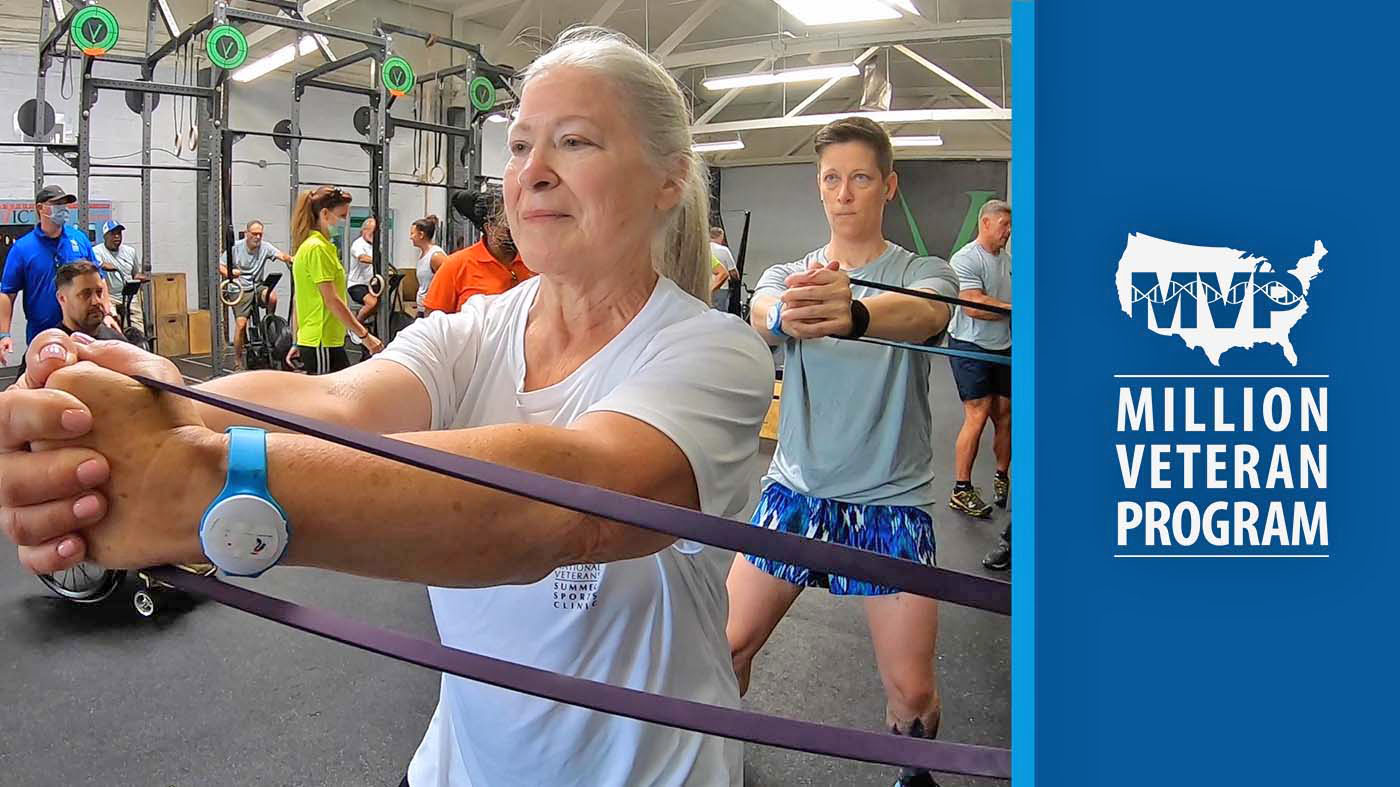Communication is fluid: the situation, information, and people we talk to shape how we deliver a message. For Veterans in gender transition, finding their voice can be enhanced with the help of specially trained speech-language pathologists (SLPs).
The Gender Affirming Program for Speech (GAPS), is a collaborative project between VA’s LGBTQ+ Health Program, the Audiology & Speech Program Office, and the ORH Veterans Rural Health Resource Center in Portland, Oregon, to provide voice and communication training for transgender and gender diverse Veterans.
Ten VA speech-language pathologists provide access to care for transgender Veterans residing in rural communities utilizing telehealth technology. Veterans can be referred to the GAPS program by any of their VA treatment providers.
Since February 2021, more than 200 transgender Veterans have been referred for gender-affirming voice and communication treatment. The GAPS program begins with a review of strategies to maintain a healthy voice and an understanding of how we vary pitch, resonance and intonation when speaking.
The program includes an understanding of non-verbal communication patterns. For example, a feminine speaker may be more animated and provide more details than their masculine counterparts. Veterans enrolled in the program typically attend 6–8 individual telehealth appointments and are scheduled for follow-up visits once a quarter to offer additional training as needed.
Veteran Q&A spotlight
Hear from two Veterans – Kaydie, an Air Force Veteran from central Pennsylvania and GAPS’s first enrollee; and Maddie, an Air Force Veteran from rural Vermont, on how VA’s GAPS program helped them find their voice and build confidence. Read the whole story here.
Tell us about your experience in the GAPS program. What did you learn about your voice/communication?
Kaydie: I think it’s been absolutely essential. Not only to my confidence, but my ability to speak in the way that I want to. I’m obviously not completely there yet, but to say “helpful” would be an understatement.
Before this program, I thought the only difference between male and female voices was pitch, but obviously, I’ve learned that there’s so much more to it. And that is what changed everything for me.
Maddie: Well, I’m really grateful I was able to get this training virtually because there wasn’t anything nearby me, because it can be really difficult to try to teach this to yourself with all the information online and not knowing what is accurate. For me, I found that where my voice feels most comfortable and where it feels like it matches who I feel I am on the inside.
One of the big things I learned is that I don’t have this one voice, regardless of whether it is understood to be masculine or feminine. I have a different voice for different occasions, such as an informal setting with friends, or a more formal interview like this, or with my partner or my kid. To be able to be ok with that flexibility took a big load off my shoulders.
Because I left like I had that prior, a different voice for different situations. I was trying to squish it all down into one voice that was going to do everything for me. Through this process, I realized it didn’t work like that.
Is there one “take-away” about your voice and communication that you have from this program?
Kaydie: I would say confidence. Before this, I would be so scared to even talk to anybody. I would just keep my mouth shut. Even when people would speak to me, I would barely speak under my breath. Now, I have more confidence in actually talking with people.
Maddie: For me, it’s a big commitment. I’m a musician. It’s like learning a new instrument. I need to put the time into practice and learn the new instrument. It takes time and consistency, and confidence, like Kaydie said. That’s a tough one for me. I want it and I want it now. It can get discouraging because I can be my own worst critic but getting feedback from someone who is very knowledgeable is extremely helpful.
I’m at a place where I’m pretty comfortable (with my voice) most of the time. And when I’m out in public is a good thing!
Learn more about the VA’s speech-language pathology services and resources for LGBTQ+ Veterans:
Topics in this story
More Stories
Navy Veteran and president of the American Medical Association got a colonoscopy and encourages other Veterans to do the same.
Chicago Vet Center and VA gave women Veterans information on VA services available to them.
MVP’s research informs personalized care for Veterans, supporting whole health and beyond.






